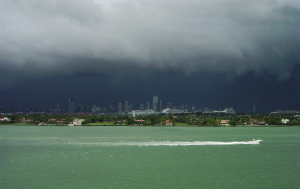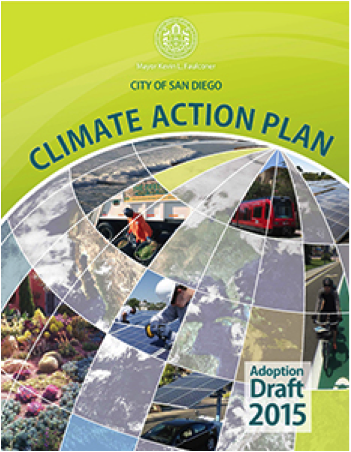Jennifer M. Klein, Esq.
Associate Director & Fellow
 Sea level rise is an “inevitable consequence” of global warming and requires innovative capital planning, according to a new Report by the Miami-Dade Sea Level Rise Task Force. The Task Force will present its recommendations to the Miami-Date County Commission on January 21, 2015. Southeast Florida is already vulnerable to flooding, severe rainfall, and storm surge; according to the Task Force, sea level rise and other effects of climate change will exacerbate these events, eventually causing some low-lying areas in Southeast Florida to be abandoned or re-purposed.
Sea level rise is an “inevitable consequence” of global warming and requires innovative capital planning, according to a new Report by the Miami-Dade Sea Level Rise Task Force. The Task Force will present its recommendations to the Miami-Date County Commission on January 21, 2015. Southeast Florida is already vulnerable to flooding, severe rainfall, and storm surge; according to the Task Force, sea level rise and other effects of climate change will exacerbate these events, eventually causing some low-lying areas in Southeast Florida to be abandoned or re-purposed.
As a “critical first step” towards adapting to climate change, the Task Force urges the County administration to hire experts to assist in developing a plan to “reinvent [Miami-Dade County’s] urban infrastructure.” The Task Force advocates for increased analysis and consideration of projected sea level rise, starting with a comprehensive study and development of adaptation strategies – including a time frame and funding mechanism – to address potential flood damage and saltwater intrusion associated with sea level rise. Infrastructure and planning projects should incorporate projected sea level rise for the life expectancy of the project,[1] and sea level rise projections should be updated as new scientific research becomes available.
The Report also recommends that the County administration prioritize restoration of the Everglades and effective use of the County’s Environmentally Endangered Lands Program (EEL) with the goal of promoting wise land use planning to increase resiliency. Finally, “[r]ecognizing the need to develop insurance mechanisms that will provide real help to the victims of climate change impacts,” the Task Force recommends that the County initiate discussions with insurance organizations to develop long-term risk management solutions.
In November, the Sabin Center for Climate Change Law (SCCCL) discussed Guidance recently issued by the San Francisco Capital Planning Committee, which encourages city and county departments to assess sea level rise vulnerability within the capital planning process. The new Report from the Miami-Dade Sea Level Rise Task Force is another welcome step towards preparing our coastline for the projected physical impacts of climate change.



